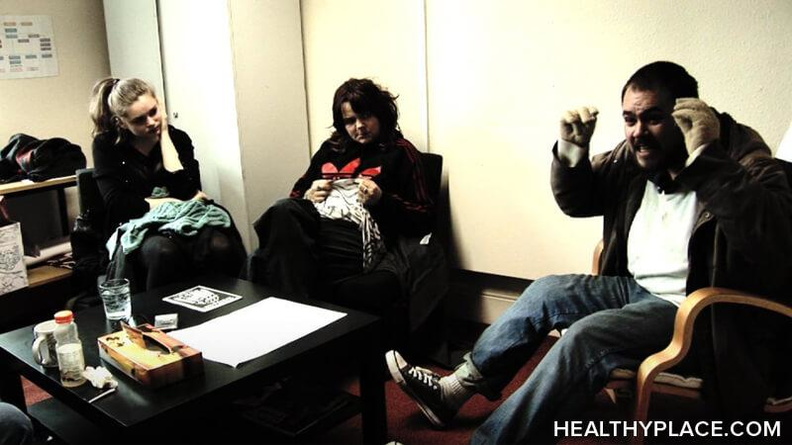
The animation shares the stories of people who hear one type of voices: those which threaten them or criticise them. Watch an inspiring animation, produced in collaboration with the Department of Psychiatry at the University of Oxford and the McPin Hearing Voices Lived Experience Advisory Panel. To read an article in The Conversation, Hearing voices can be frightening and isolating - but talking can help.
#Schizophrenia and hearing voices full#
To read the full paper, The challenges and opportunities of social connection when hearing derogatory and threatening voices: A thematic analysis with patients experiencing psychosis. Lead author, Dr Bryony Sheaves, Department of Psychiatry, University of Oxford.

Our hope is that this project inspires more conversations about voices, because nobody should be hearing nasty voices alone. Hearing voices that are not present is a prominent symptom of serious mental illness. I am frequently left feeling inspired by people’s resourcefulness and strength for managing these really difficult experiences. Through my work in the NHS I have met many people who struggle with voices saying really nasty and abusive things to them. The research suggests that connecting with people could well be an important vehicle in helping people to manage nasty voices, but this requires testing in future research. Speaking to people helped provide distraction from the abusive comments made by voices, it provided an opportunity to gather other information in an effort to question the nasty things the voices said and some actually described hearing nasty voices less often when they were around others. ” Is connecting with people important in helping people manage hearing nasty voices? “T he more I could open up, the more I let my mates know, the more everything has settled down really. Several interviews revealed that social support was a crucial step in the process of recovery. Being isolated wasn’t a long term solution, as another participant explains, “Not talking to people just made myself worse."
/positive-symptoms-in-schizophrenia-2953124-5d9769edb6ae4fa38284442f850315e1.png)
Understandably they have a powerful impact on the individual. The voices can seem incredibly real, and are often described as being very believable and difficult to ignore (Sheaves et al., 2020). Whilst voices differ substantially, what unites all voice hearing experiences is that they are rarely talked about. These can have very disruptive effects on day-to-day life. However, others hear voices that are scary or critical. Indeed, these kinds of voices can be very enriching experiences. Some people hear voices that are friendly, helpful, insightful or inspiring. He can’t remember exactly when the voices began, in part because he thought everyone heard them.What is it like to be around people whilst also hearing voices? Here are a few of the people I’ve met over the last few months I’ve spent reporting on young people who have been diagnosed with schizophrenia, or experienced symptoms that seemed, possibly, pre-schizophrenic.Įfrain Pacheco is 21 and lives in San Diego. “It’s like being surrounded by a gang of bullies.” “It’s not like wearing an iPod”, says the Stanford anthropologist Tanya Luhrman.

But when a voice is a recognizable voice, more than often, it’s not very nice. They can sound more like a murmur, a rustle or a beeping. But is this always the case We’ve known for a long time that hearing voices, or auditory. There can be “voices that are more thought-like,” says Jones, “voices that sound like non-human entities, voices that are perceived as the direct communication of a message, rather than something you’re actually hearing.” Voices aren’t always voices, either. For many people hearing voices is synonymous with schizophrenia and severe mental illness. “There’s a huge range of voice hearing experiences,” says Nev Jones, postdoctoral fellow in anthropology at Stanford University who was treated for her psychotic symptoms in 2007. People with schizophrenia often have a hard time explaining what it’s like to hear voices.


 0 kommentar(er)
0 kommentar(er)
